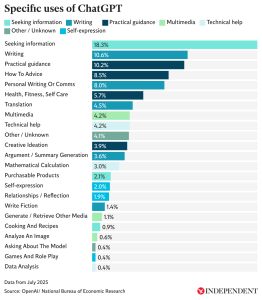Key Takeaways
- AI conversations lack legal protections and can be used as evidence in criminal cases
- Major tech companies like Meta are scanning AI chats to serve targeted ads
- Over 1 billion AI app users are vulnerable to data exploitation
Your private conversations with AI chatbots like ChatGPT could become evidence against you in court, as demonstrated by recent criminal cases where suspects incriminated themselves through AI interactions.
AI Confessions Lead to Criminal Charges
In a landmark case, 19-year-old Ryan Schaefer was charged with vandalizing 17 cars after allegedly confessing to ChatGPT. The college student asked the AI: “how f**ked am I bro?.. What if I smashed the shit outta multiple cars?” Police cited this “troubling dialogue” in their report.
Days later, ChatGPT was mentioned in another affidavit involving Jonathan Rinderknecht, arrested for allegedly starting the deadly Palisades Fire that killed 12 people. He had requested AI-generated images of a burning city.
No Legal Protection for AI Conversations
OpenAI CEO Sam Altman confirms there are no legal protections for user-chatbot conversations. “People talk about the most personal shit in their lives to ChatGPT,” Altman said. “Young people especially use it as a therapist or life coach, but unlike real therapists, there’s no legal privilege.”
Users share highly sensitive information with AI, including medical concerns, financial documents, and relationship problems.
Data Exploitation by Companies and Criminals
Starting December, Meta will scan voice and text interactions with its AI tools to serve targeted ads across Facebook, Instagram and Threads. The company admits there’s no opt-out option.
Security researchers have also discovered vulnerabilities where hackers can hijack AI browsers to access user data for blackmail. The scale of data sharing creates opportunities for both law enforcement and criminals.
The Targeted Advertising Threat
While Meta claims its AI data usage is benign, history shows targeted ads can be destructive. Vulnerable users searching for financial help have been served predatory loan ads, while problem gamblers receive casino promotions and elderly users are targeted with overpriced investment schemes.
Meta CEO Mark Zuckerberg, who once described Facebook users as “dumb fucks” for trusting him with data, said users will let Meta AI “know a whole lot about you, and the people you care about.”
Privacy Concerns Return to Tech Agenda
As AI usage surpasses one billion users, the industry faces ethical challenges similar to the Cambridge Analytica scandal. Cybersecurity expert Pieter Arntz warns: “The industry faces big ethical and privacy challenges. Brands and AI providers must balance personalisation with transparency and user control.”
With no legal safeguards, AI users risk becoming both the product and the prey in this new data economy.





